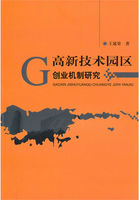"Yes,you may be right,"at last he said."Your Maud is not for me,nor those like me.Between us and you is that 'great gulf fixed;'--what did the old fable say?I forget.--Che sara sara!I am but as others:I am but what I was born to be.""Do you recognize what you were born to be?Not only a nobleman,but a gentleman;not only a gentleman,but a man--man,made in the image of God.How can you,how dare you,give the lie to your Creator?""What has He given me?What have I to thank Him for?""First,manhood;the manhood His Son disdained not to wear;worldly gifts,such as rank,riches,influence,things which others have to spend half an existence in earning;life in its best prime,with much of youth yet remaining--with grief endured,wisdom learnt,experience won.Would to Heaven,that by any poor word of mine I could make you feel all that you are--all that you might be!"A gleam,bright as a boy's hope,wild as a boy's daring,flashed from those listless eyes--then faded.
"You mean,Mr.Halifax,what I might have been.Now it is too late.""There is no such word as 'too late,'in the wide world--nay,not in the universe.What!shall we,whose atom of time is but a fragment out of an ever-present eternity--shall we,so long as we live,or even at our life's ending,dare to cry out to the Eternal One,'It is too late!'"As John spoke,in much more excitement than was usual to him,a sudden flush or rather spasm of colour flushed his face,then faded away,leaving him pallid to the very lips.He sat down hastily,in his frequent attitude,with the left arm passed across his breast.
"Lord Ravenel."His voice was faint,as though speech was painful to him.
The other looked up,the old look of reverent attention,which Iremembered in the boy-lord who came to see us at Norton Bury;in the young "Anselmo,"whose enthusiastic hero-worship had fixed itself,with an almost unreasoning trust,on Muriel's father,"Lord Ravenel,forgive anything I have said that may have hurt you.
It would grieve me inexpressibly if we did not part as friends.""Part?"
"For a time,we must.I dare not risk further either your happiness or my child's.""No,not hers.Guard it.I blame you not.The lovely,innocent child!God forbid she should ever have a life like mine!"He sat silent,his clasped hands listlessly dropping,his countenance dreamy;yet,it seemed to me,less hopelessly sad:then with a sudden effort he rose.
"I must go now."
Crossing over to Mrs.Halifax,he thanked her,with much emotion,for all her kindness.
"For your husband,I owe him more than kindness,as perhaps I may prove some day.If not,try to believe the best of me you can.
Good-bye."
They both said good-bye,and bade God bless him;with scarcely less tenderness than if things had ended as he desired,and,instead of this farewell,sad and indefinite beyond most farewells,they were giving the parental welcome to a newly-chosen son.
Ere finally quitting us,Lord Ravenel turned back to speak to John once more,hesitatingly and mournfully.
"If she--if the child should ask or wonder about my absence--she likes me in her innocent way you know--you will tell her--What shall you tell her?""Nothing.It is best not."
"Ay,it is,it is."
He shook hands with us all three,without saying anything else;then the carriage rolled away,and we saw his face--that pale,gentle,melancholy face--no more.
It was years and years before any one beyond ourselves knew what a near escape our little Maud had had of becoming Viscountess Ravenel--future Countess of Luxmore.















